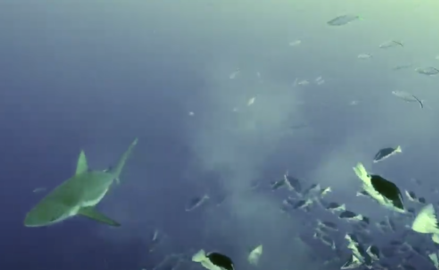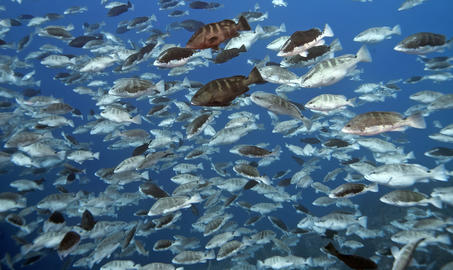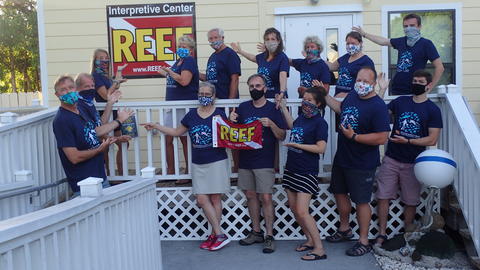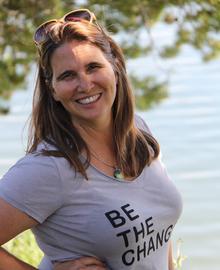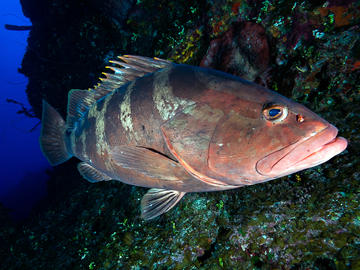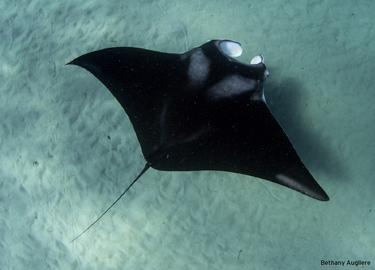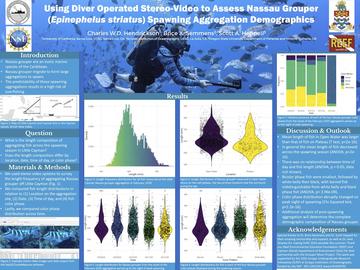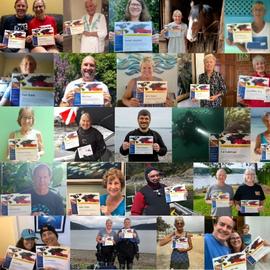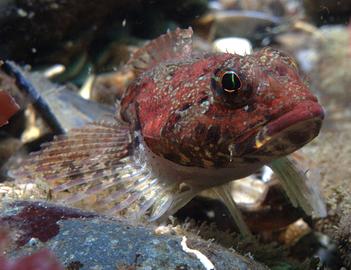Since last week, our partners at the Cayman Islands Department of Environment have been busy in the field, conducting multiple dives each day on the Nassau Grouper spawning site on the west end of Little Cayman. Since 2002, this site has been the focus of our collaborative conservation effort, the Grouper Moon Project. The team has been performing visual assessments, collecting size estimates through stereo-video, and capturing images of individual fishes for our "Fish Faces" project, which uses artificial intelligence to measure population size.
Each winter since 2002, REEF has sent a team of researchers and volunteers to Little Cayman for the Grouper Moon Project. This collaborative research effort between REEF and the Cayman Islands Department of the Environment (CIDOE) conducts groundbreaking research to study the Nassau Grouper spawning aggregations, to help ensure recovery of the populations of this iconic and Critically Endangered species.
Many have wondered REEF's Volunteer Fish Survey Project (VFSP) fared during a year when the COVID-19 pandemic made it challenging for many REEF volunteers to get in the water. We are pleased to share some good news from 2020:
- On April 1, 2020, the VFSP database surpased a quarter-million surveys. This is a significant milestone, not only for REEF and our worldwide community of ocean stewards, but for citizen science and marine conservation as a whole!
We are extremely proud and honored to announce that one of REEF’s Executive Directors, Dr. Christy Pattengill-Semmens, was recently named to the Women Divers Hall of Fame. Christy is a marine biologist whose work at REEF intersects ocean citizen science, education, and conservation. She first worked with REEF as an intern in 1993 and then joined the REEF staff in 1998. Christy oversees all aspects of REEF’s Volunteer Fish Survey Project, one of the longest-running and largest marine life sightings programs, engaging volunteer divers and snorkelers all over the world.
A new research paper containing exciting findings from the Grouper Moon Project was recently published in the journal Marine Ecology Progress Series. Much of the science done by the project's collaborative team is focused on better understanding Nassau Grouper populations in the Cayman Islands through studying their spawning aggregations. However, long-term acoustic tags (tracking pingers) also allow us to gather information on how these fish behave at their home reefs outside of the spawning season.
Researchers from the Marine Megafauna Foundation, Jessica Pate and Andrea Marshall, show strong evidence that south Florida features a nursery ground for manta rays, only the third such special place known for the species.
Since the organization's earliest days, a key aspect of REEF's success has been strategic partnerships with academia, government agencies, and other non-profits. REEF has a long history of collaboration with the scientific community, starting in the early 1990s when REEF's founders worked with researchers from University of Miami, NOAA, and The Nature Conservancy to determine the best protocols for the Volunteer Fish Survey Project. There are currently four students from Scripps Institution of Oceanography at UC San Diego who are working with REEF on various data projects.
All data submitted to REEF’s Volunteer Fish Survey Project (VFSP) are housed in a publicly-assessible database that can be queried through a variety of reports on the REEF website. REEF recently partnered with Dr. Ross Robertson at the Smithsonian Tropical Research Institute (STRI) to link the online REEF Species Distribution Reports to species accounts on STRI’s online information systems, “Shorefishes of the Greater Caribbean” and “Shorefishes of the Tropical Eastern Pacific”.
This is testing how the embedding option would work.
As we shared last month, surveyor Mike Snow recently submitted the 250,000th survey to our Volunteer Fish Survey Project database. When we asked him to give us some thoughts on what he likes best about REEF, he shared a story about a time when he was buddied with fellow REEF member Greg Jensen, a marine biologist at the University of Washington and author of several reference books, including one on sculpins. Mike and Greg were part of a REEF Advanced Assessment Team project at Saltwater State Park in Washington.

